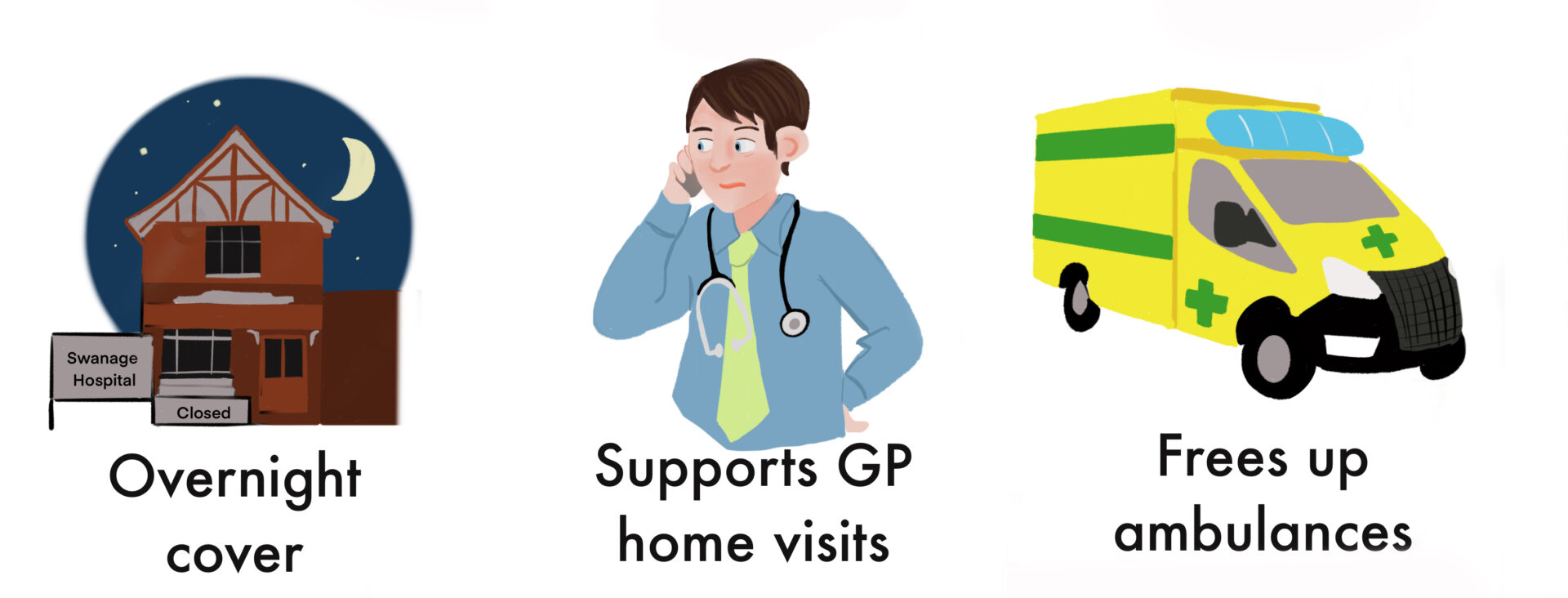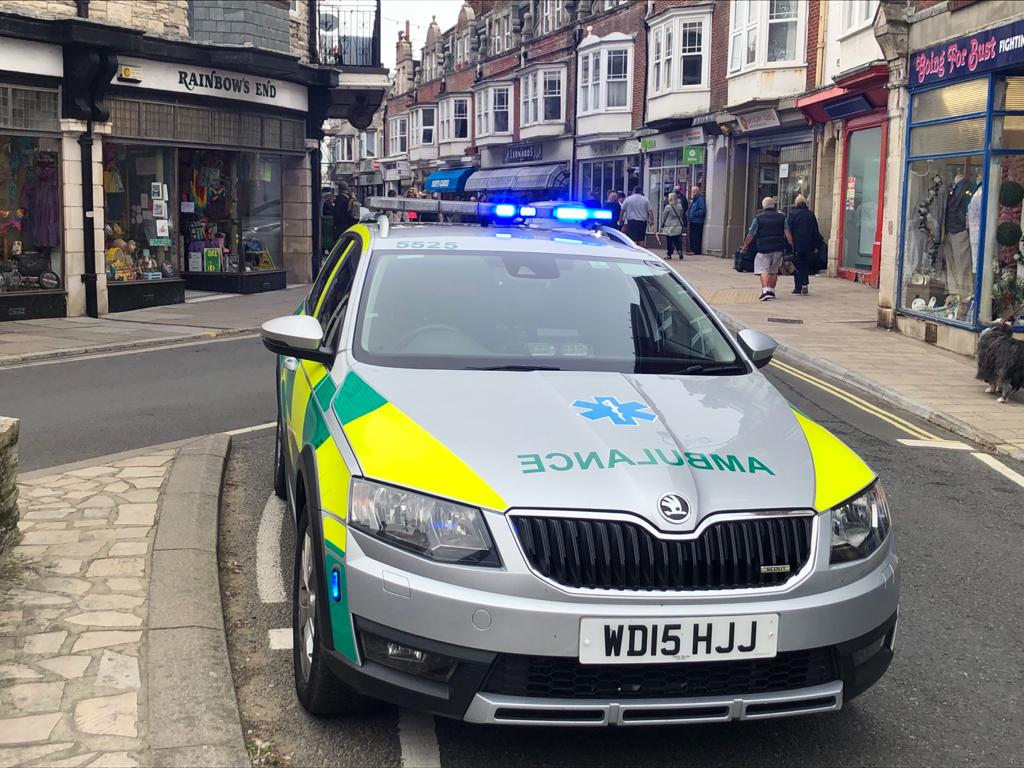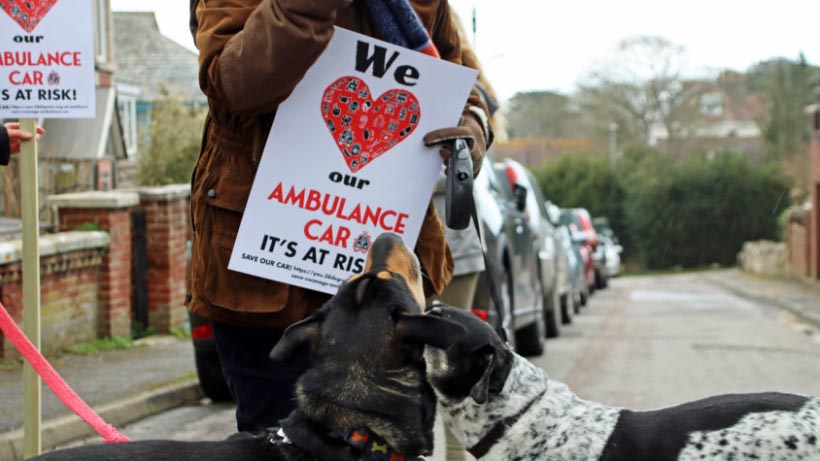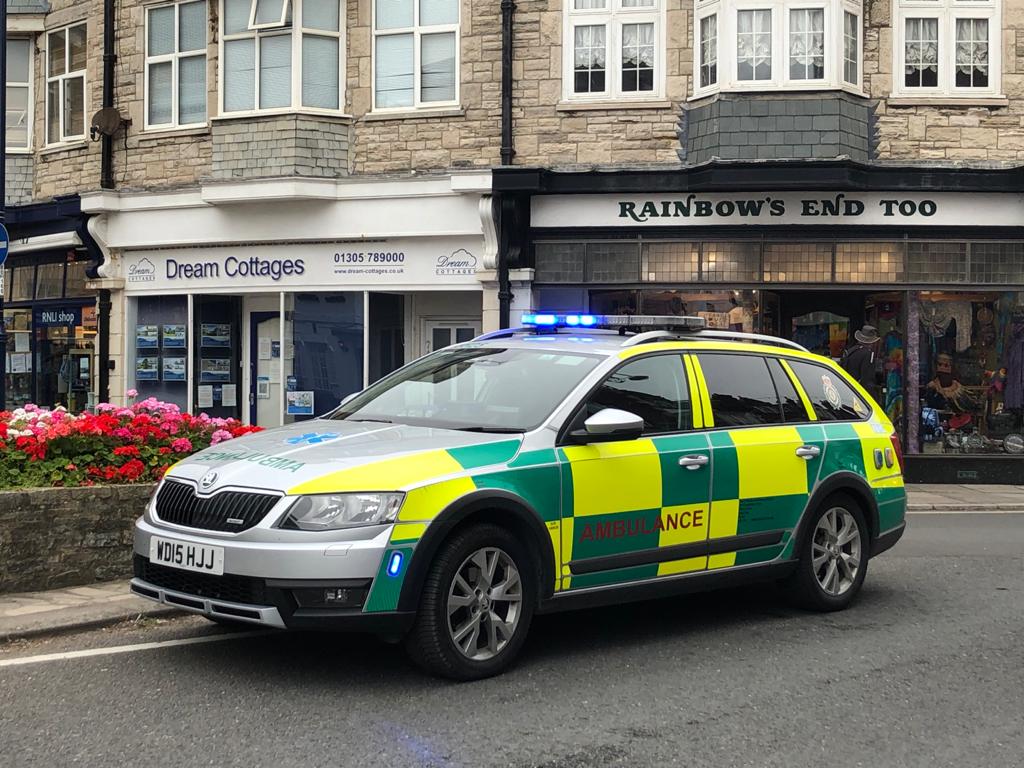




The 24/7 Swanage–based Isle of Purbeck Paramedic Car was allocated in 2008, when Swanage Cottage Hospital first closed overnight, because of the distance from Swanage, and Isle of Purbeck villages, to Poole Hospital.
The Swanage-based Car has been under threat of withdrawal since Spring 2020. A resident reported that the Ambulance Trust planned to withdraw it. The outgoing Ambulance Trust Chief Executive confirmed that the Car would be withdrawn on 1st April 2020, unless Dorset Clinical Commissioning Group continued to fund it. In letters and emails since, Dorset CCG’s Chief Executive, the then Purbeck GP Lead, and our MP, have stated either that the current service is due to end shortly, or that Dorset CCG propose to ‘replace’ the Car with extra ambulance hours at Wareham, 10 miles away.
In March 2022 we received the welcome news that the Paramedic Car service has been saved. However we continue to monitor staffing, number and location of call outs, and emergency response times for Swanage and Purbeck. Please see ‘Latest Report’ under ‘Latest News’ on News page.
The further emergency hospital care moves away, the greater the need for a fast, life saving response in Swanage and Isle of Purbeck. DCCG made a minuted committment to fully maintain Ambulance resources based in Swanage. In 2018 DCCG recognised that, with the planned loss of A&E, Maternity and Children’s units from Poole Hospital, Swanage residents would have to travel approaching 30 miles, much of it on congested single track roads, to access emergency hospital care. In order to protect Swanage lives, DCCG committed to Dorset Council that Swanage Ambulance resources would be fully maintained and staffed. Our Ambulance resources are: the Ambulance Station, our 24/7 Ambulance and our 24/7 Paramedic Car. This commitment appears in Dorset Council Health Scrutiny Minutes, 17th October 2018, page 5, paragraph 1.
Unlike our Purbeck ambulances, which are often out of base in use across the County, the rapid response Car is ‘tethered’ to Swanage and Purbeck. Staffed by a single Paramedic, the Car stays in Purbeck because it does not routinely take patients to hospital, it provides overnight cover Swanage Cottage Hospital Injuries Unit is closed, and it supports Purbeck GP’s by assessing patients who are too ill to get to the surgery. The Car is a fast 4×4, so can get to places ambulances cannot reach, and is often first on the scene in an emergency. The skills of the Paramedic, and the equipment carried, can help to maintain life until an ambulance arrives. The Paramedic also treats at the scene the just under 50% of emergencies where the patient does not need to go to hospital, freeing up our double crewed ambulances.
Two Freedom of Information Act Responses from the Ambulance Trust show annual Paramedic Car use in 1) Swanage and in 2) wider Purbeck. There were 1,875 call outs of a Paramedic Car to Purbeck in one year. More than half the Purbeck call outs were category 1-3 emergencies, the most serious, where there is risk to life or of permanent disability. Swanage is the hot spot in Purbeck, with higher overall use, category 1 imminent danger of death use, and category 1-3 serious emergency use in Swanage than in the rest of Purbeck put together.
The average time from Swanage extreme emergency to arrival at Poole Hospital = 1 hour 43 minutes: A Freedom of Information Act Response from the Ambulance Trust to Langton Parish Council shows that, over 13 months, the average time from a category 1, imminent danger of death call from any BH19 postcode (Swanage, Langton, Worth, Kingston, Harmans Cross, Studland) to the Ambulance Trust, to arrival of the patient at Poole Hospital, was 1 hour 43 minutes. This time is expected to be longer still when A&E, Maternity and Children’s units close at Poole Hospital.
“As the number of defibrillators has grown, so too has their deployment. The use of a defibrillator at the scene of a cardiac arrest is a vital part of the ‘chain of survival,’ along with ‘early CPR’ and ‘early Advanced Life Support’. Taking this into consideration, the partnership raises concerns around recent reports that the Swanage Ambulance Car is to be decommissioned. The partnership would like to see an open consultation take place on the future of this service and will advocate for it to continue, recognising its vital role in that ‘chain of survival’.
This quote appeared in Swanage Area Forum Newsletter, June 2021



Local people, including some Town Councillors, and Swanage Area Forum, have come together to work to keep the Car. Swanage & Wareham Town Councils have voted unanimously to take all steps necessary to retain the Car, and note that withdrawal would be “a threat to the lives of local people”. Indeed all six Purbeck Town and Parish Councils have made statements in support of retention, as has the Swanage Community Defibrillator Partnership.
So far, the campaign has been extremely successful in demonstrating the strength of feeling the community have on this issue, and the desperate need that many of them have to maintain the service. Now, we are waiting for the DCCG engagement period to begin and we must be ready to leap into action when it does! Visit our “What YOU can do to help!” page to see how you can add to the momentum of this crucial campaign!
Swanage RRV use – Freedom of information request – FOI 3620 RRV use Swanage
RRV use outside of Swanage – FOI 3714 RRV use outside Swanage
Average ambulance arrival time – Langton SWAST FOI 1 hr 43 mins
Promise to maintain ambulance services – DHSC 17 October 2018 minutes
